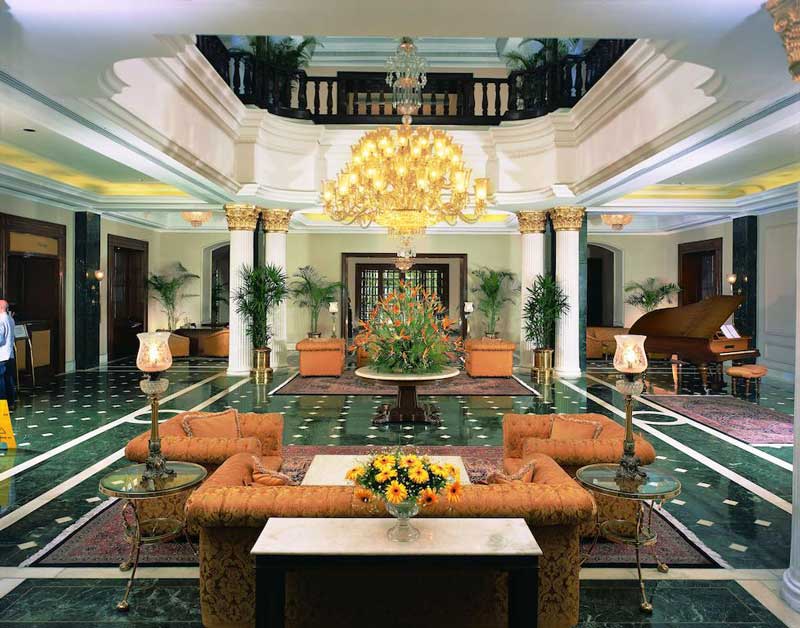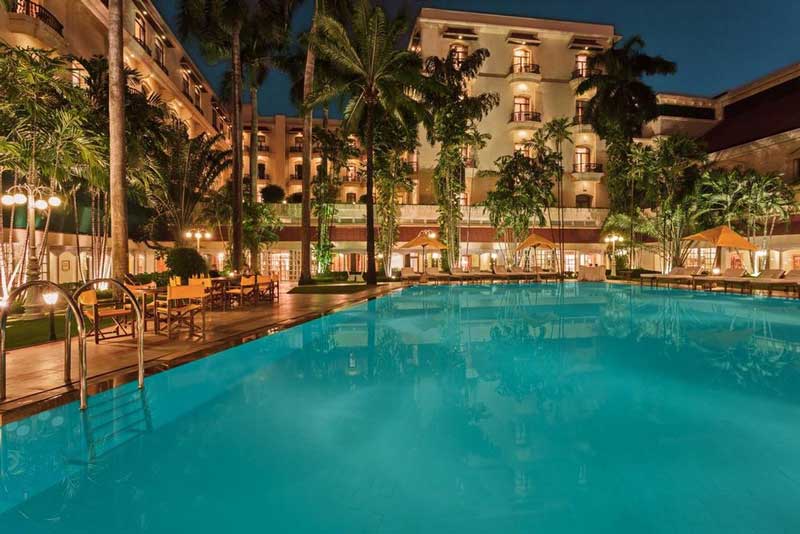
Appropriately described as the grand old dame of Calcutta, the elegant building of the Grand Hotel, subsequently renamed Oberoi Grand, is located on Chowringhee Road, in the heart of the bustling social and entertainment centre of Calcutta. The site of the hotel was originally developed in the early nineteenth century, when a certain Colonel Grand built his private residence at 13 Chowringhee Road. The property changed hands in 1870 when an enterprising Irishwoman, Mrs. Annie Monk converted it into a boarding house, the first of its kind in this part of the world and later expanded her business to include the adjacent plot numbers 14, 15 and 17.


In the meantime, Arathoon Stephen, an Armenian from the city of Isfahan in Iran, had arrived in Calcutta and proceeded to make his fortune by selling jewelry from a wheelbarrow. Gradually, he accumulated a considerable size of fortune and had purchased numbers 16 and 17 Chowringhee to open a jewelry and antique shop at 18 Chowringhee Road and the Theatre Royale at No 16.
After that, when the theatre was destroyed by fire in 1911, Stephen bought out the run-down boarding house from Annie Monk, as she was in the process of winding up the establishment for returning home in Ireland and redeveloped all the properties together into a 3-story 500-room hotel that came to be known as the Grand Hotel. Built in neoclassical style, the hotel with its classical ambience, won the heart of the English population of the city and soon it became a popular entertainment centre for the high society.


By 1937, ten years after the death of Arathoon, repeated outbreaks of cholera and typhoid in Calcutta resulted in the death of six people at the hotel, which forced the Grand Hotel to shut its doors. However, Mohan Singh Oberoi, a young college dropout from Punjab, took the opportunity of taking a lease of the property and reopened the hotel in 1939 as Oberoi Grand. This was the first hotel acquired by the founder of the Oberoi Group and he ultimately purchased the property in 1943.
During its prime time, the hotel played host to Indian royalty, heads of state, celebrities, Cricketers and reputed writers. At the time of World War II, it accommodated about 4000 American Army men and events like the US marines’ Ball at the hotel remind visitors of such times.

Oberoi Grand has the largest pillar-less ballroom in the city, where several grand parties are hosted. The grand lobby, centred by a low-hanging glass chandelier, leads to a large swimming pool, restaurants, bars and concierge counters. With marble floors, dark wood aplenty and highly polished brass fittings, the traditional wicker furniture and a billiard table, it maintains much of its original style, decor, grandeur and charm.
The relaxed but classy Chowringhee Bar is a buzzy place for a drink, while the cozy La Terrace restaurant does a decent line in Indian and Bengali dishes, along with some Western staples. Baan Thai is among the most celebrated Thai restaurants in the city.